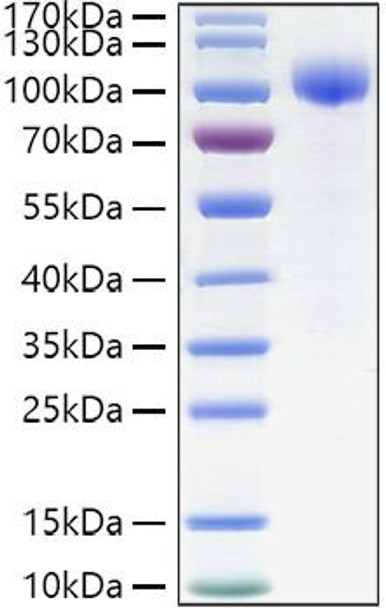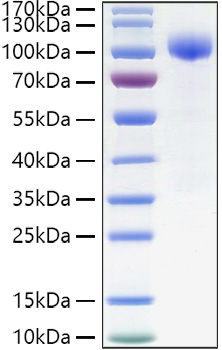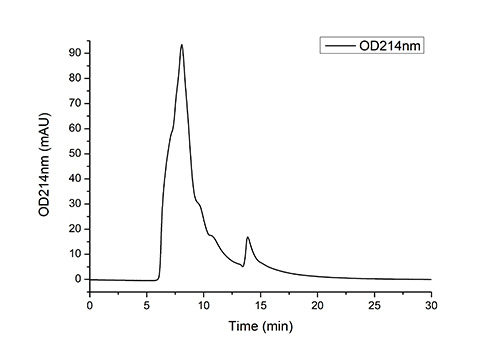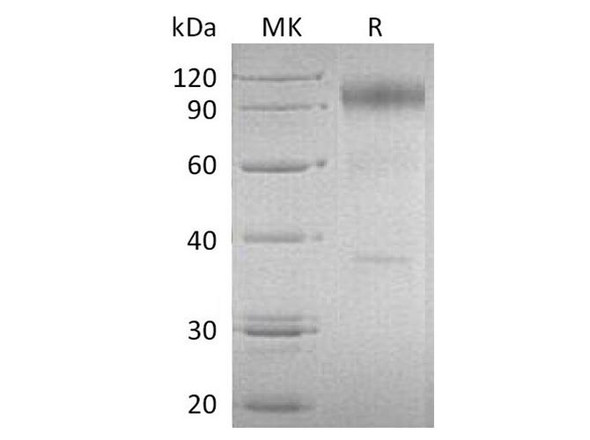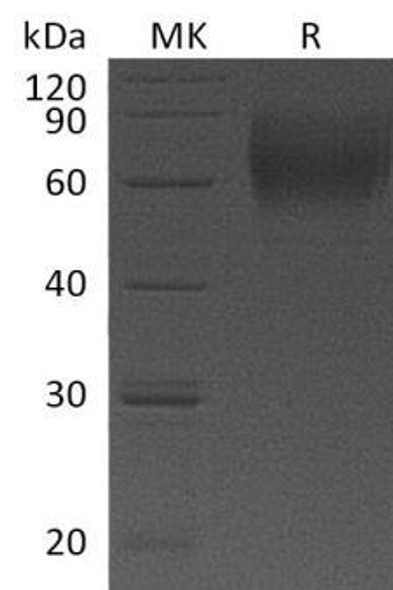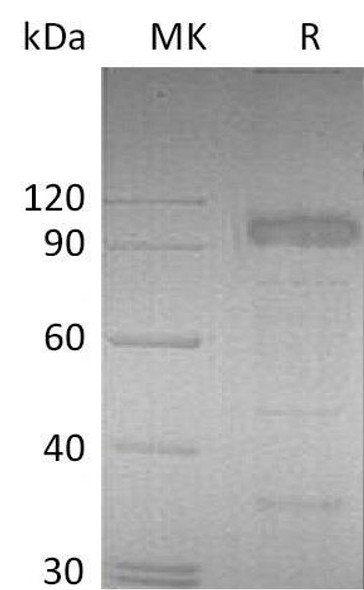Description
Recombinant Human IL-23R Protein
The Recombinant Human IL-23R Protein is a biologically active recombinant protein that plays a significant role in various cellular processes and signaling pathways in human biology. This protein is widely employed in immunological research, cell biology studies, protein-protein interaction analyses, and therapeutic development, providing researchers with a reliable tool for investigating IL-23R function and its implications in health and disease.
This product (SKU: RPCB1395) is produced using HEK293 cells and features a C-hFc tag for convenient detection and purification. The protein exhibits a calculated molecular weight of 64.01 kDa with an observed molecular weight of 90-110 kDa under denaturing conditions, achieving ≥ 95 % as determined by SDS-PAGE;≥95 % as determined by HPLC.. Functional bioactivity has been validated through rigorous quality control assays, confirming its suitability for demanding research applications.
Key Features
| High Purity by Affinity Chromatography | |
| Mammalian & Bacterial Expression Systems | |
| High lot-to-lot consistency via strict QC |
| Product Name: | Recombinant Human IL-23R Protein |
| SKU: | RPCB1395 |
| Size: | 10 μg , 20 μg , 50 μg , 100 μg |
| Reactivity: | Human |
| Synonyms: | IL23R |
| Tag: | C-hFc |
| Expression Host: | HEK293 cells |
| Calculated MW: | 64.01 kDa |
| Observed MW: | 90-110 kDa |
| Gene ID: | 149233 |
| Protein Description: | High quality, high purity and low endotoxin recombinant Recombinant Human IL-23R Protein (RPCB1395), tested reactivity in HEK293 cells and has been validated in SDS-PAGE.100% guaranteed. |
| Endotoxin: | < 1 EU/μg of the protein by LAL method. |
| Purity: | ≥ 95 % as determined by SDS-PAGE;≥95 % as determined by HPLC. |
| Formulation: | Lyophilized from a 0.22 μm filtered solution of PBS, pH 7.4. |
| Bio-Activity: | Measured by its binding ability in a functional ELISA.Immobilized Human IL-12B&IL-23A at 5μg/mL (100 μL/well) can bind Human IL23R with a linear range of 4-135 ng/ml. |
| Reconstitution: | Centrifuge the vial before opening. Reconstitute to a concentration of 0.1-0.5 mg/mL in sterile distilled water. Avoid vortex or vigorously pipetting the protein. For long term storage, it is recommended to add a carrier protein or stablizer (e.g. 0.1% BSA, 5% HSA, 10% FBS or 5% Trehalose), and aliquot the reconstituted protein solution to minimize free-thaw cycles. |
| Storage: | Store at -20℃.Store the lyophilized protein at -20℃ to -80 ℃ up to 1 year from the date of receipt. After reconstitution, the protein solution is stable at -20℃ for 3 months, at 2-8℃ for up to 1 week. |
IL23R, also known as the IL23 receptor, belongs to the type I cytokine receptor family, Type 2 subfamily. It contains 2 fibronectin type-III domains and is expressed by monocytes, Th1, Th0, NK, and dendritic cells. Isoform 1 is specifically expressed in NK cells. IL23R associates with IL12RB1 to form the interleukin-23 receptor. It binds IL23 and mediates T-cells, NK cells, and possibly certain macrophage/myeloid cell stimulation probably through activation of the Jak-Stat signaling cascade. IL23 functions in innate and adaptive immunity and may participate in acute response to infection in peripheral tissues. IL23 may be responsible for autoimmune inflammatory diseases and be important for tumorigenesis. Genetic variations in IL23R are associated with inflammatory bowel disease type 17 (IBD17). IBD17 is a chronic, relapsing inflammation of the gastrointestinal tract with a complex etiology. Genetic variations in IL23R also can cause susceptibility to psoriasis type 7.

